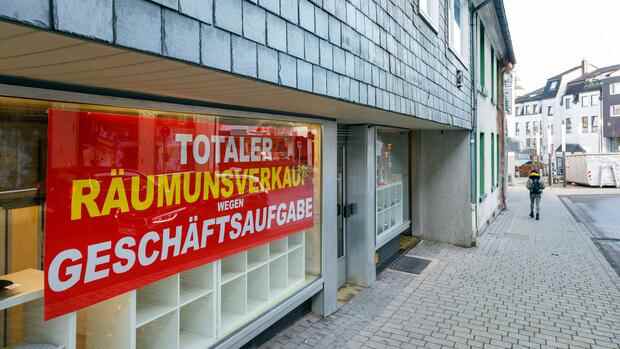Berlin One and a half billion euros: That’s the amount that small businesses and the self-employed have paid back to the state or still have to do. In the spring of 2020, the money was paid out as emergency corona aid shortly after the first lockdown began.
The then Finance Minister Olaf Scholz (SPD) announced that the up to 15,000 euros would not have to be repaid. It was therefore a shock for many of those affected when they received the news that the state wanted the money back.
The reason: The financial difficulties forecast for 2020 were not as great as expected at the time, and there were also some changes to the funding criteria.
A survey of the federal states responsible for processing federal aid shows that 132 million euros in mandatory repayments are still outstanding. However, several state governments are still checking, so the number is likely to increase significantly.
The federal and state governments have recognized the emergency. In recent weeks there has been a lively exchange of letters between Berlin and the state governments specifically on this topic. The first adjustments have already been implemented, but those affected continue to complain about problems with repayments.
Because their economic situation is still dramatic. The mood among micro-enterprises and the self-employed has worsened recently. According to a survey published by the Ifo Institute on Tuesday, 26 percent currently fear for their existence. In the economy as a whole, only 13.7 percent reported existential concerns.
Economics Minister Robert Habeck (Greens) and the new Finance Minister Christian Lindner (FDP) have provided some relaxation. The states must send a final report on the emergency aid to the federal government.
Habeck and Lindner recently pushed back the deadline for this from mid-year to the end of the year. This is an important measure, says Michael Kellner, Parliamentary State Secretary in the Ministry of Economics. “Moderate, predictable payment terms also help companies get back on their feet,” he told Handelsblatt.
Interest is to be retained
However, it is now up to the federal states to pass on the time gained to the companies. Most say they intend to do so. Some countries write that they want to act accommodatingly, but want to continue to set the repayment period depending on the individual case. This is indicated by Hesse and Berlin, for example, where many companies are affected.
“The federal and state governments urgently need to come to an agreement on the Corona emergency aid, the procedures are too different, including how to deal with refunds,” says Torsten Lüth, President of the German Association of Tax Advisors.
More on the repayment of Corona emergency aid:
Hamburg’s Finance Senator Andreas Dressel (SPD) proposes allowing a deferral period of two years and installment payments of up to four years after payment for the repayment of any aid.
Nationwide, 55,000 companies have already settled the claim. “Many entrepreneurs had to go to their, often personal, financial reserves,” criticizes Katharina Beck, financial policy spokeswoman for the Greens. There must also be solutions for those who are now getting into new problems because of this.
Different approaches between the countries can also be seen in the amount of the repayments. Hamburg, Rhineland-Palatinate, Saxony-Anhalt and Thuringia add up to five percent interest to the repayments. However, this only applies if the applicant is “faulty”. This can be incorrect information in the application.
“But how is it decided when it is a matter of fault?” Asks Green politician Beck. “The level of interest is simply inappropriate compared to the private credit industry.”
Beck also thinks it is appropriate for many companies because of the current challenging situation that the state should now waive interest – unless a criminal offense can be proven.
“Don’t need clever tips from Berlin every day”
Some countries refer to legal requirements. But the federal government disagrees. Through the “administrative agreements between the federal and state governments [besteht] no immediate obligation to pay interest,” says a message from the Federal Ministry of Economics to the committee, which is available to the Handelsblatt.
The countries still want to stick to interest rates. Only a fraction of the companies are at fault, meaning that interest accrues, explains Hamburg’s Senator for Finance, Dressel. “I believe that this is still in the spirit of the federal government,” he says.
“We don’t need clever tips from Berlin every day,” says a state economics minister who wants to remain anonymous. The friction between the federal and state governments causes a lack of understanding in the economy. The companies are unanimous in saying that clear coordination is needed.
More: Traffic light will probably postpone super write-offs
